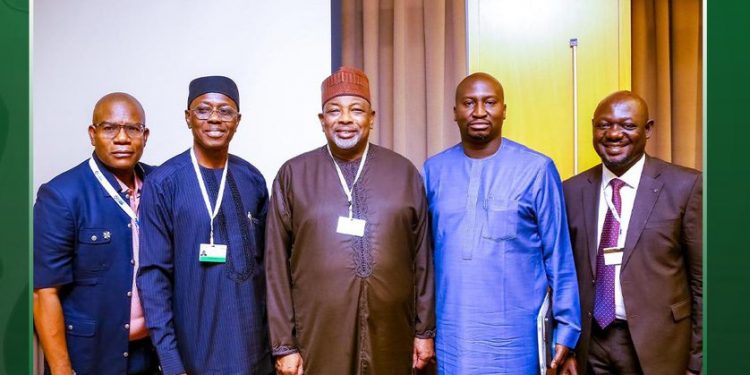Nigeria has drawn international attention with its ambitious agricultural reforms and partnerships during the UN Food Systems Stocktaking Moment (UNFSS+4) in Addis Ababa, Ethiopia. At a high-level side event titled “Catalyzing Change: Showcasing Nigeria’s Innovations and Collaborations in Food Systems Transformation,” the country outlined its progress and renewed commitments to overhauling its food systems.
Representing President Bola Tinubu, the Minister of Agriculture and Food Security, Senator Abubakar Kyari, said Nigeria remains committed to building inclusive, climate-resilient, and nutrition-sensitive food systems. He emphasized that these national efforts are aligned with global frameworks such as the UN 2030 Sustainable Development Goals, the African Union’s Agenda 2063, and the Malabo Declaration.
Kyari described the event as a call for “collective, catalytic, impactful, and sustained action,” underlining the need for innovation, reliable data, and cross-sector partnerships to drive systemic change.
Since presenting its National Food Systems Transformation Pathways in 2021, Nigeria has launched several strategic initiatives. These include the Special Agro-Industrial Processing Zones (SAPZs), the expansion of climate-smart agriculture, and digital interventions like the National Agriculture Growth Scheme (NAGS) aimed at improving smallholder productivity and income.
The minister also highlighted Nigeria’s efforts to integrate women and youth into the agricultural transformation. He noted the mapping and empowerment of young agri-preneurs nationwide and the rollout of the Nutrition 774 (N-774) programme, which brings targeted nutrition projects to every local government area in the country.
International collaboration remains a cornerstone of Nigeria’s strategy, with support from partners such as the African Development Bank, IFAD, FAO, UNICEF, GIZ, and the World Food Programme. Financial reforms are also underway, including the N1.5 trillion recapitalization of the Bank of Agriculture and the establishment of the National Agricultural Development Fund to support blended financing for high-impact projects.
Despite these strides, Kyari acknowledged Nigeria continues to face serious challenges such as climate shocks, insecurity, and food inflation. He referenced President Tinubu’s State of Emergency on Food Security, which triggered the creation of the Presidential Food Systems Coordinating Unit (PFSCU). This body works to align the efforts of government and private actors in tackling the country’s food security crisis.
“Our food systems transformation is not a sprint, it’s a marathon that demands courage, collaboration, and bold investments,” Kyari said, calling on young people, women, investors, and partners to remain actively engaged in driving Nigeria’s agricultural agenda forward.










